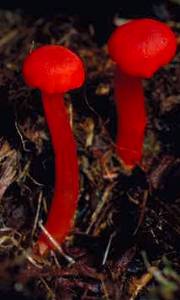28 October 1998
Fungus That Kills Dope Plants May Be No Fun At All

According to an AP story on October 22, U.S. government researchers are in the process of testing a soil-borne fungus, or "mycoherbicide," which they believe will kill narcotics plants without harming other plants or animals. The United States congress recently approved US$23 million for further research into this botanical weapon in the war on drugs, which, it is hoped, will eradicate the plants that provide the sources of cocaine, marijuana, and heroin.
Some researchers, however, are skeptical that mycoherbicides will only affect narcotics plants. Dr. Paul Arriola, Assistant Professor of Biology at Elmhurst College in Elmhurst, Illinois, has studied the interaction between genetically-altered crops and their relatives for several years. Through a phenomenon known as "transgene escape," genetically-engineered, herbicide-resistant plants can exchange genetic material with wild weed relatives, creating herbicide-resistant weeds.
While transgene escape may not be a side effect of mycoherbicide use, Dr. Arriola points out that plants (including some used in producing pharmaceuticals) which possess chemical compounds similar to those found in narcotics plants may be at risk. Says Dr. Arriola: "The interactions between fungi in the soil and the roots of plants they infect are not completely understood. One cannot help but be concerned with the prospect of a mycoherbicide that could adversely affect a plant that produces a certain class of chemical."
He adds, "There is always the possibility we will lose control of the fungus, which then might adversely affect other plants. For example, cocaine is of a class of chemicals called alkaloids. Other common alkaloids that have value to us include nicotine, caffeine, quinine, morphine, and ephedrine. What happens if the fungus affects these crops as well? Furthermore, by using a biological agent to control these plants, we may be forcing them to evolve even stronger chemicals. It is frightening to think that in the search for a quick fix (haha - ed.), we might cause ourselves more long-term ecological and social problems."
